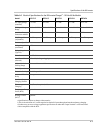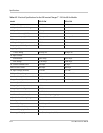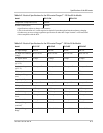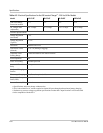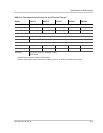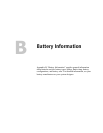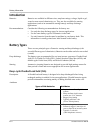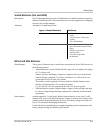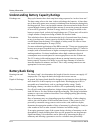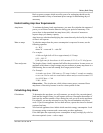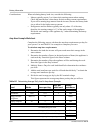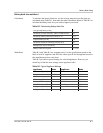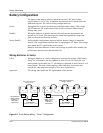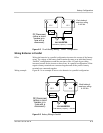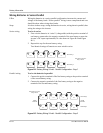
Battery Types
975-0012-01-02 Rev A B–3
Sealed Batteries (Gel and AGM)
Description Gel Cell and absorbed glass mat (AGM) batteries are sealed and do not require the
addition of distilled water. Since these batteries are valve regulated, over-charging
can cause irreversible damage.
Attributes Attributes of sealed batteries are:
NiCad and NiFe Batteries
Disadvantages These types of batteries can be used but are not optimized for the DR Inverter for
the following reasons:
• Alkaline batteries, such as NiCad and NiFe types, have a nominal cell voltage
of 1.2 volts per cell.
Xantrex inverters and battery chargers are optimized for use with lead acid
batteries having a nominal 2.0 volts per cell (that is, 12 cells for a 24-volt
system and 24 cells for a 48-volt system).
The number of cells required in a battery bank for alkaline batteries must,
therefore, be adjusted for a 24- and 48-volt system
(i.e, 20 cells for a 24-volt system and 40 cells for a 48-volt system).
• Alkaline batteries require a higher charge voltage to fully recharge, and drop
to a lower voltage during discharge compared to a similarly sized lead-acid
type battery.
Other options Another option for 24 volt (only) alkaline battery banks is to use only 19 cells
instead of 20. Fewer cells allow the battery charger to operate more closely to the
settings used for lead-acid batteries. However, the battery voltage will drop to as
low as 18 volts when discharging the batteries.
Consult the battery manufacturer or supplier regarding system requirements and
battery charger settings for alkaline type batteries.
Types of Sealed Batteries Attributes
Gel Cell • Gelled electrolyte instead of
liquid
• Long life (up to 1500 cycles,
typical)
• Low self-discharge
Absorbed Glass Mat • Electrolyte is contained in
glass-fibre mats between battery
plates
• Similar to gel cells in
characteristics
• Good low temperature
performance



